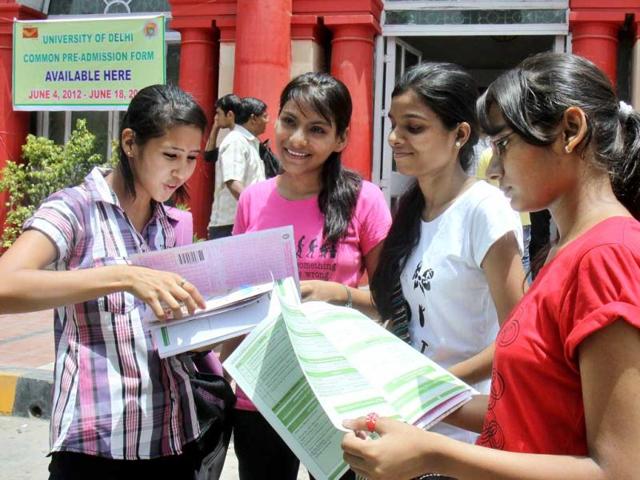Indian universities must push knowledge as an end in itself
The dominant model of the modern Indian university seeks to professionalise the consumption of knowledge. This is in keeping with the colonial mission of training students for the job market, writes Saikat Majumdar.
Protests by about 80,000 students in Italy this October have sent a clear message to their government. They don’t want a university education that merely trains them for the job market. In overwhelming numbers, they have essentially voted down Premier Matteo Renzi’s so-called Jobs Act, which was passed by a vote of confidence on October 10 as part of his labour reform proposals.

This event creates a powerful logic of hope against the professionalisation of higher education to fit it to the demands of the job market, which has increasingly come to define the mission of the university worldwide since the mid-20th century. Often it has felt like a natural process — and the right thing to do — as postsecondary education has opened up beyond the elite.
In the US, for instance, this happened gradually under the dual impact of the post-World War II GI Bill, which sponsored post-secondary education for war veterans, and that of the creation of land-grant institutions, which emphasised professional education as opposed to a classical liberal education.
In Britain, the so-called red-brick universities, initially established as science or engineering colleges, offered, to new entrants to post-secondary education, a more pragmatic track as opposed to the liberal arts enshrined in Oxbridge.
When the British set up the first modern Indian universities in Bombay, Calcutta and Madras, their goal too was professional rather than liberal. As Andre Beteille has reminded us, the objective was to produce graduates fit for jobs in the government and the emerging professions. Gauri Viswanathan has shown how even the liberal arts became a curricular vehicle of professional certification.
Beteille has argued that sociopolitical pressures did not allow universities to depart from this colonial mission even after independence. Even the Nehruvian vision for higher education, which shaped the birth of the University Education Commission in 1948, failed to change this fundamental character of Indian universities.
Universities in independent India, therefore, continued to do what they had been set up to do in the 19th century — as Beteille says, “to produce increasing numbers of graduates of indifferent quality”.
Reading Beteille and Viswanathan — several years after I graduated from college in Calcutta — has enabled me to put my undergraduate education in illuminating perspective. I had honours in English — the subject Viswanathan puts at the heart of the mission of the imperial educational enterprise.
Half a century after Independence, the life of the subject, as lived in the university, revolved around the heavily bureaucratised system of mass-examination that Beteille has outlined so memorably.
This system had long since become safely archived in public memory, and the most visible form of this archive was available for purchase in the bookstalls of College Street — the famous anthologies of test question papers, from the last 10, 20, or 30 years, depending on the resourcefulness of the publisher.
Education in India, however, is nothing if not dazzlingly uneven, and like Oxbridge, in Calcutta, it mattered far more which college you attended than the vast, sprawling university that conducted the examination and gave you the official degree.
My institution, St. Xavier’s, gave me an excellent literary education layered with a genuine spirit of liberal humanism. But all of this was contained, in the end, within the larger pedagogic framework scaffolded by the colossal machinery of the colonial bureaucracy — the University of Calcutta.
Everything was tested by the final yardstick of the university examination. In short, even the liberal arts and sciences survived on a method of professional certification that bureaucratised the consumption of knowledge.
But consumption of knowledge is only half the story of the intellectual life of the disciplines. The other part is the production of knowledge.
The large trajectory of academic higher education in any subject, and not only the liberal arts, is essentially about the gradual shift from the mode of consumption to that of production. From being a consumer of knowledge — a student — to being a producer of new knowledge through original research.
The dominant model of the modern Indian university seeks to professionalise the consumption of knowledge. This is in keeping with the colonial mission of the university in the 19th century. It is easy to binarise the consumption and the production of knowledge between undergraduate education and doctoral research.
While that is true to some extent, a rigid binarisation such as that which has traditionally defined higher education in India creates serious roadblocks when people make the institutional transition from the stage of consumption to that of production.
Curricular structures are changing in universities across India, and yet recent events show that there are serious social and political obstacles in their attempts to abandon their original colonial mission.
The new private universities, especially those focusing on the liberal arts and development studies, invite us to imagine more vigorously the dissolution of the binary of the consumption and the production of knowledge. Importantly, the chance to produce knowledge must also be made available to those who will not move on to a research track.
The challenge and the pleasure of the production of knowledge, howsoever fragmented in memory, will stay with graduates even as they move away from the specific field. And only a seamless relation between intellectual consumption and production creates knowledge that enriches society and the long-term imagination that can sustain it.
Saikat Majumdar teaches English at Stanford University, US
The views expressed by the author are personal



